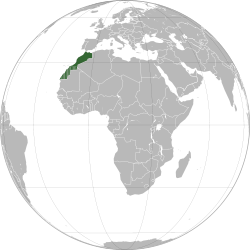Sufism: The Spritual Path To Preach Love, Coexistence And Peace – OpEd
Morocco owes its image of a modern Muslim nation to Sufism, a spiritual and tolerant Islamic tradition that goes back to the first generations of Muslims who, for centuries, has supported religious cohesion, social and cultural Moroccan society. Sufism provides answers to some of the most complex problems facing the contemporary Muslim world, where youth comprise the majority of the population.
Most Moroccans, young or old, practice one form of Sufism or another. Deep component of the Moroccan identity, Sufism absorbs all members of society, regardless of their age, sex, social status or political orientation.
Sufism attracts more young Moroccans because of its tolerance, due to the easy interpretation that gives to the Qur’an, its rejection of fanaticism and its embrace of modernity. Young people are the principles of” beauty” and” humanity”. Sufism balanced lifestyle that allows them to enjoy arts, music and love without having to abandon their spiritual or religious obligations.

Sufi orders exist throughout Morocco. They organize regular gatherings to pray, chant and debate timely topics of social and political, from the protection of the environment and social charity to the fight against drugs and the threat of terrorism.
In addition, focusing on the universal values that Islam shares with Christianity and Judaism (as the pursuit of happiness, the love of the family, tolerance of racial and religious differences and the promotion of peace) Sufi gatherings inspire young people to engage in interfaith dialogue.
Taken together, Sufi seminars, chants and spiritual gatherings provide a social medium where millions of Moroccans mix the sacred and the secular, the soul and the body, the local and the universal. Every aspect that is both possible and enjoyable.
Sufis distance themselves from fundamentalists (who see Islam strict and Utopian emulation of the Prophet Muhammad and his companions), with particular emphasis on the adaptation of community concerns and priorities of the modern time. Sufis neither condemn unveiled women nor do they censor the distractions of our time. For them, the difference between virtue and vice is the intent, not appearances.
Sufism is so diffuse in Moroccan culture that its role can not be properly understood if reduced to a sect or a sacred place. People get together to sing Sufi poetry, the primordial essence of the human being, the virtues of simplicity and the healing gifts of Sufi saints such as Sidi Abderrahman Majdub, Sidi Ahmed Tijani, and Sidi Bouabid Charki, the spiritual masters revered by peers and disciples for having attained spiritual union with God during their earthly lives.
Gnawa musicians, the descendants of African slaves brought to Morocco between the twelfth and seventeenth centuries, produce a music that is a mix of religious lyrics deeply rooted in the oral tradition of sub-Saharan Africa and melancholic melodies reminiscent of jazz and blues. The Gnawa performance centers on a spinning body and a high-pitched voice, rhyming poetic verses with Sufi chants in Arabic such as” there is no other God but God and Muhammad is his messenger.” These words are terrifying when they are spoken by a terrorist, but lift the soul when they are sung by pious Muslims, Gnawa and other Sufi-inspired musicians.
In addition to Moroccans, thousands of young people in Europe, America and Africa flock to sacred music festivals organized every summer by Sufi movements throughout Morocco, to sing and celebrate their enthusiasm for life and their commitment to the universal values of peace. The scene at these festivals completely refutes the kind of image that extremists seek to convey to Muslim youth.
It is this fusion of Sufism and modernity that produces a unique aesthetic experience, which is attractive to Moroccan youth who reject extremism and uphold values of a shared humanity.

Holy Qur’an,2:256 tells that there is no compulsion in faith: Surah 109:6 tells that for you your religion?faith for me my faith”.Here begins peaceful co-existence and tolerance.One point of PanchaShila principle of Pandit Javaharlal Nehru,India is indebted to this Qur’anic verses probably through the influence of Mahatma Gandhi.